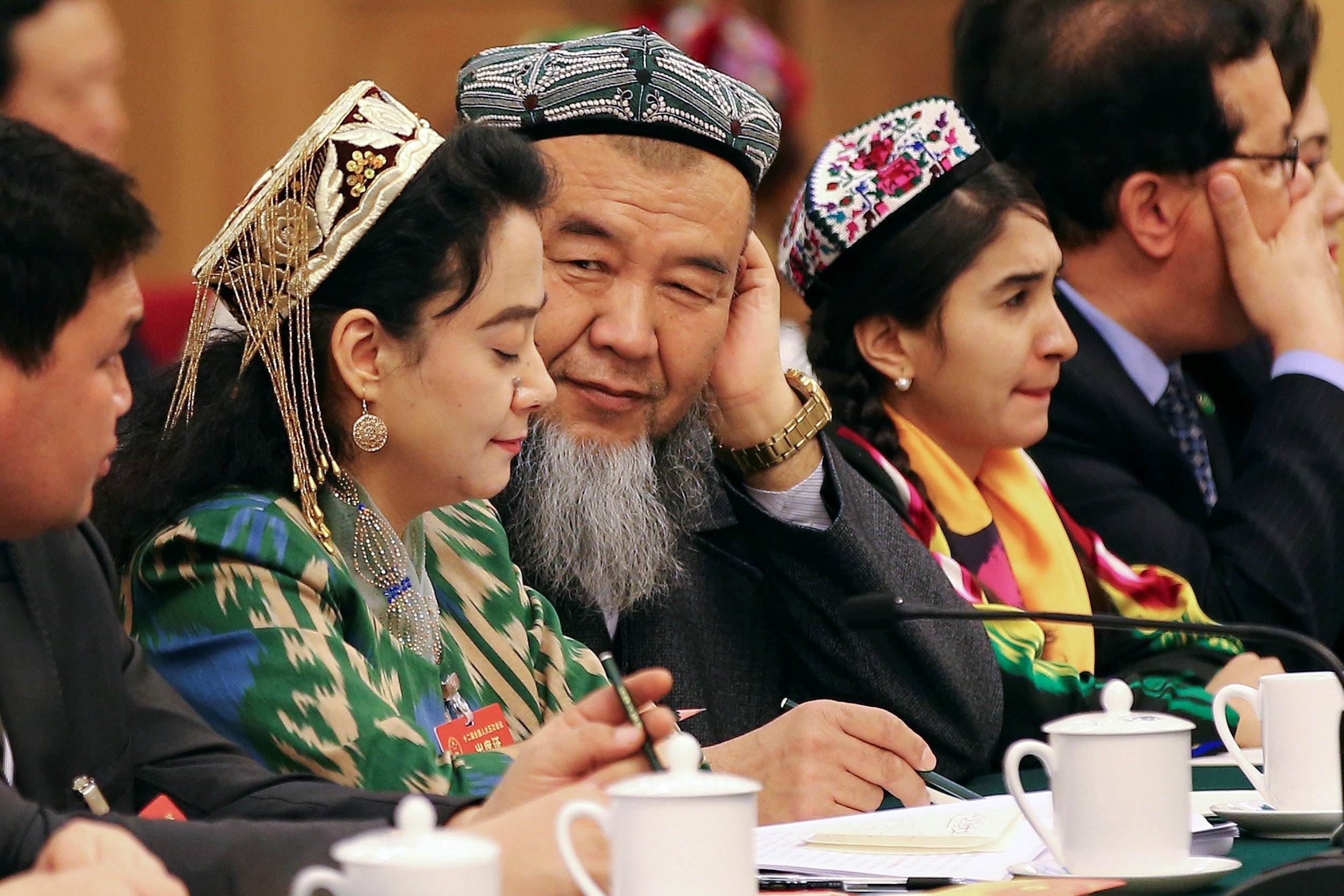
China's Xinjiang province, home to around 10 million Muslims, passed legislation Wednesday prohibiting forms of religious expression including wearing veils in public places and growing "abnormal" beards. ("Abnormal" was not described in the law.) The refusal to listen to state radio or watch state television were also classified as impermissible "extremist acts." The new laws, set to come into effect Saturday, are the Chinese government's latest effort to curb what it deems religious extremism in the region, which is made up of a majority of Muslim ethnic Uighurs.
There have been hundreds of deaths in the far western region in recent years in clashes between the Uighurs and Han Chinese, for which Beijing has pinned the blamed on Islamic militants. Human rights groups have said the violence was a reaction to repressive government policies. Chinese President Xi Jinping earlier this month called for a "great wall of iron" around Xinjiang.
China insists it respects the rights of the Muslim Uighur people, but a number of restrictive laws have been put in place in recent years. Individual cities and villages have variously outlawed fasting for Ramadan, attending mosques, wearing face veils, growing long beards as well as requiring shopkeepers and restaurant owners in one village to sell alcohol and cigarettes.
The new law, said one expert on China's ethnic issues, effectively sought to codify and legitimize existing legislation in the region.
"By creating a [region] wide regulation, the new regime of Xinjiang party secretary Chen Quanguo is seeking to strengthen [Communist Party] control and root out any acts of non-compliance," James Leibold, a professor at Australia's La Trobe University told the South China Morning Post. "In the process, however, many aspects of Uygur cultural and religious life are now being deemed 'abnormal' and 'manifestations' of extremism, and thus subject to punitive enforcement."
The law is made up of a list of 15 prohibited behaviors and actions published by local state-controlled media. Also included: applying the concept of Halal to meddle in the lives of secular people; carrying out marriages, divorces and funerals according to religious rather than legal principles; damaging legal documents and failing to adhere to family planning policies.
The rules, Leibold warned, were likely only to "increase their sense of cultural insecurity and thus ultimately undermine the party-state's attempts to create a more socially cohesive and stable society in Xinjiang."
Uncommon Knowledge
Newsweek is committed to challenging conventional wisdom and finding connections in the search for common ground.
Newsweek is committed to challenging conventional wisdom and finding connections in the search for common ground.
About the writer
Jason Le Miere is from the British island of Jersey, which has absolutely no relation to the Garden State, other than ... Read more





